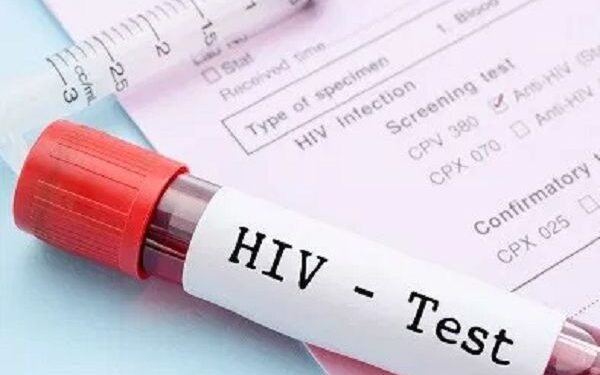Dr. Stephen Ayisi Addo, the National AIDS Control Programme’s (NACP) programme manager, has disclosed that two persons in the Volta Region become HIV positive every day.
As a result, he urged the general people to take strong actions and get tested for HIV to determine their status. He said that this would allow people living with HIV (PLHIV) to receive antiretroviral medication (ART) earlier, ensuring viral suppression and slowing the trend.
Dr. Addo was speaking at a durbar at Ho Jubilee Park last Friday (July 5), following the Health Walk on “Antiretroviral Therapy @20,” which was held on Ho’s main streets by the general population.
The NACP arranged the morning workout in partnership with the Volta Regional Health Directorate and the Ghana AIDS Commission, with the subject “Celebrating the Success of Antiretroviral Therapy in Ghana.”
Meanwhile, Dr. Addo said that 12,000 persons died from HIV-related ailments in the country last year. He stated that 150,000 PLHIV in the country are now receiving ART.
Read Also: Child marriage ban welcomed in Sierra Leone
Dr. Addo stressed the need of consolidating the country’s ART accomplishments over the last two decades. He urged citizens to adopt sexually responsible lives in order to assist global measures aimed at ending the AIDS pandemic by 2030. “We need a healthy nation for progress and to attain the Sustainable Development Goals,” according to him.
Local resources.
Ernest Amoabeng Ortsin, President of the Ghana HIV and AIDS Network, emphasized the need for the government to give domestic resources to assist HIV control efforts. “We cannot continue to rely on donor funding alone for these programmes,” said the minister.
Mr. Ortsin, interim President of the Global Fund’s Ghana Country Coordinating Mechanism, emphasized the need of making the National HIV/AIDS Fund operational.
Elsie Arye, the President of the Network of Associations of individuals Living with HIV, stated that HIV is still prevalent in Ghana and infecting more individuals. She highlighted that Ghana must be safeguarded against new infections and that persons who tested positive for HIV had no right to voluntarily spread the virus to others.
HIV control and early treatment efforts are hampered by the fact that many individuals in the region still do not know their HIV status, according to Kwesi Brenyah, the regional pharmacist. As a result, he raised his voice in support of the movement encouraging individuals to get an HIV test and learn their status.


























